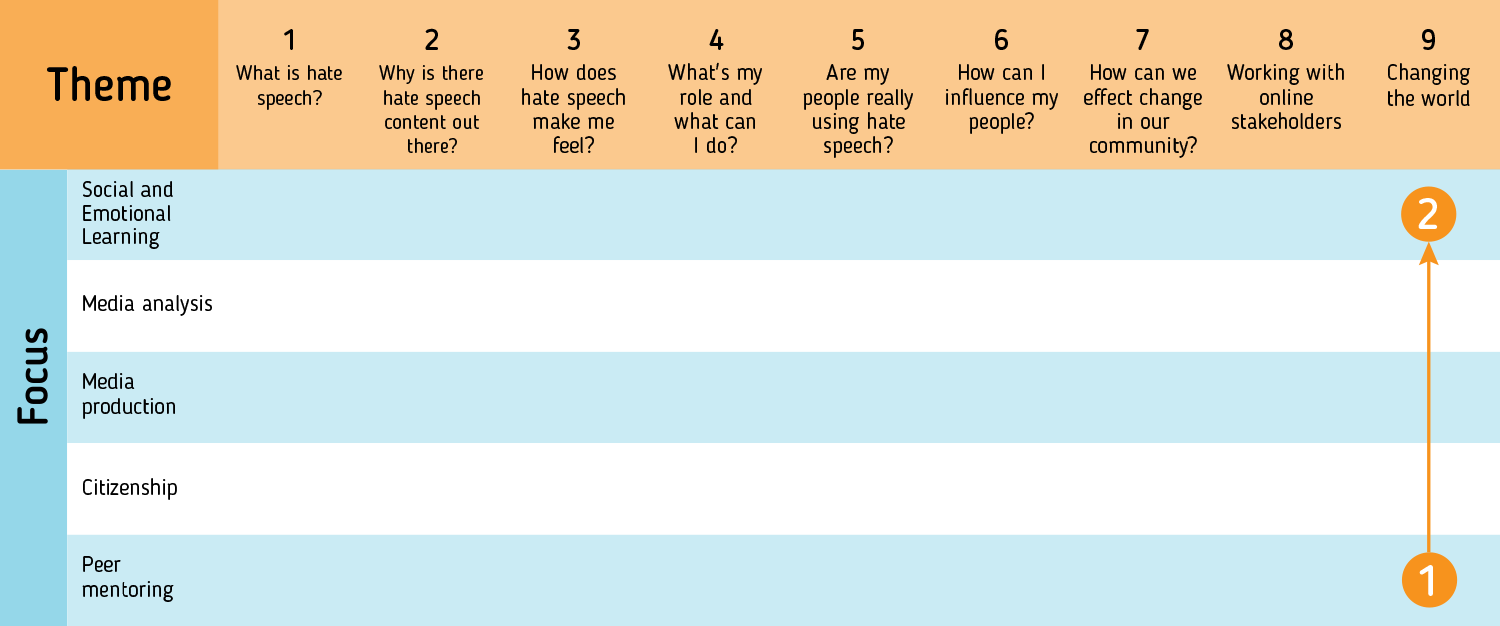Pathway 4: Changing the world
In this section, we suggest a possible pathway you can work through when putting SELMA into practice as part of a peer mentoring scheme. Please note that this is by no means restrictive; SELMA has been designed as an open and flexible framework which you can adapt to the needs, level and interests of the group(s) you work with. The SELMA journey articulated below has been developed for illustrative purposes, to give you a suggested ‘way in’ to the toolkit if you’re not sure where to start. However, we would certainly encourage you to explore the toolkit and use it creatively!

After ensuring that young people are clear about the definition of hate speech, begin the first activity from the ‘Peer Mentoring’ focus (‘Scissor words or glue words?’) in ‘Theme 8’. This activity is designed to get young people to think about the power of words to bring people together or tear them apart, as well as the way that words can take on different meanings and have different consequences in different contexts. Use this activity as an opportunity to get peer mentors to think about the importance of things like context and intention, but ultimately of empathy and thoughtful reflection when it comes to our language choices – because “scissor” words can have harmful repercussions, regardless of speakers’ intentions. Once you have completed this activity, move on to the second activity (‘Just a word?’). This activity is designed to reinforce the messages learnt in the first activity: the power of words, and particularly in social media environments with large audiences and significant room for interpretation.
Once you have completed the activities in the ‘Peer Mentoring’ focus, move on to the main activity in the ‘Social & Emotional Learning’ focus (‘Respectful dialogue’). This activity builds on the key take-aways from the ‘Peer Mentoring’ activity above by encouraging reflection and providing practical tips to ensure respectful communication amongst peers.
